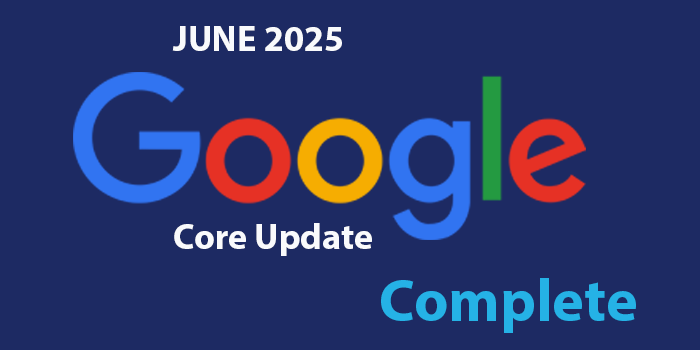Introduction
When Google rolls out a core update, the entire digital world holds its breath—and the June 2025 Core Update was no different. Whether you’re a blogger, eCommerce business owner, or SEO professional, this update has likely touched your rankings in one way or another. So, what actually changed, and more importantly, what should you do now?
Overview of the June 2025 Core Update
Google officially began rolling out its June 2025 core update on June 3rd, 2025, and the process was completed on June 28th, 2025. This update was announced through Google’s official Search Central Blog and confirmed via their @searchliaison Twitter account. The update, like its predecessors, was global and affected all languages and regions.
Unlike product review updates or spam updates, core updates are broader and target the overall quality and relevance of content across the web.
Purpose Behind the Update
So, why another core update?
Google constantly tweaks its algorithms to ensure that users are getting the most accurate, relevant, and trustworthy content. The June 2025 update focused heavily on refining how Google evaluates content quality, particularly looking into content helpfulness, authorship clarity, and the genuineness of expertise.
Key Changes in the June 2025 Core Update
Changes to E-E-A-T
Google’s concept of E-E-A-T (Experience, Expertise, Authoritativeness, Trustworthiness) became even more central to rankings. The June 2025 update emphasized real-world experience—prioritizing authors who can clearly demonstrate lived knowledge or professional expertise in their niche.
Impact on AI-Generated Content
AI content isn’t banned, but it’s being scrutinized more carefully. Google’s systems are now better at identifying whether content is machine-written and whether it truly adds value. Rehashed, keyword-stuffed AI articles saw significant ranking drops.
Devaluation of Spammy Backlinks
Link building got another cleanup. Sites with poor backlink profiles—especially those involved in obvious link exchanges, PBNs, or spammy guest posts—lost visibility fast.
Increased Emphasis on Helpful Content
“Helpful content” isn’t just a buzzword anymore—it’s a ranking factor. Thin content, listicles with no substance, and pages written purely for clicks got demoted in favor of content that answers user intent clearly and thoroughly.
Who Was Affected Most?
Industries Impacted
- Health & Wellness
- Finance
- Travel
- Tech Blogs
- Affiliate-heavy sites
These niches tend to be more sensitive due to their need for high trustworthiness and clear expertise.
Types of Websites Affected
- Thin affiliate sites
- AI content farms
- Websites without a clear author or organization behind them
- Pages with high bounce rates and low time-on-site metrics
Rankings Volatility Analysis
According to data from SEMrush Sensor and MozCast, this update caused one of the most volatile SERP shifts in the last 18 months. Many sites saw fluctuations of 20% or more in traffic within days.
How This Update Compares to Previous Ones
Comparison with March 2024 Core Update
The March 2024 update was more focused on technical issues like page experience and mobile usability. The June 2025 update, by contrast, leaned harder into content quality and trust signals.
Long-Term SEO Strategy Shifts
Google is clearly moving away from “hacky” SEO tactics. Future-proof strategies now revolve around authentic content, genuine engagement, and user-first design.
Google’s Communication and Transparency
Search Central Blog Updates
Google released a detailed changelog (a rarity!) explaining what was refined, giving more clarity to SEOs and site owners.
What to Do If Your Site Was Affected
Audit Your Content
Start by asking: Does this page genuinely help the reader? Remove or revise anything that feels thin, repetitive, or unclear.
Improve Site Authority and Trust
Add author bios, cite sources, get real backlinks from trustworthy domains, and showcase your team’s expertise.
Focus on User Experience
Simplify navigation, speed up your site, and make sure your layout is mobile-friendly. A bad UX can silently kill your rankings.
SEO Best Practices Post-June 2025 Update
Content Strategy Tips
- Write for humans, not bots.
- Include first-hand experiences or data.
- Keep content updated and relevant.
Technical SEO Checks
- Fix broken links
- Optimize page speed
- Use schema markup for better indexing
Link Building Do’s and Don’ts
- Do: Earn links from relevant, high-quality sites
- Don’t: Buy or exchange links
- Do: Build relationships in your niche
Tools to Analyze the Impact
Google Search Console
Check your performance report for traffic drops, ranking changes, and crawl errors. Look at “Search Queries” to see what keywords lost visibility.
Third-Party SEO Tools
Platforms like Ahrefs, SEMRush, and Moz allow deeper visibility into keyword movements, backlink profiles, and competitor data.
Real-World Examples
Case Studies of Recovered Sites
One travel blog lost 50% of its traffic but recovered in 30 days after improving page structure, adding author bios, and consolidating outdated content.
Common Mistakes Made
- Ignoring mobile issues
- Publishing too much AI content
- Neglecting author credibility
Google’s Advice for Recovery
Quality Content Is Still King
If your site dropped, it doesn’t mean you’re penalized—it means better content was found. Fix your weaknesses, and rankings may return.
Avoid Manipulative Tactics
Trying to “game the algorithm” with black-hat SEO won’t work anymore. Authenticity wins.
Predictions for the Next Core Update
Future Focus Areas
Expect Google to tighten its grip on content credibility and author reputation even more.
Algorithm Trend Expectations
- More personalized SERPs
- Better semantic understanding
- AI vs. human content filters









